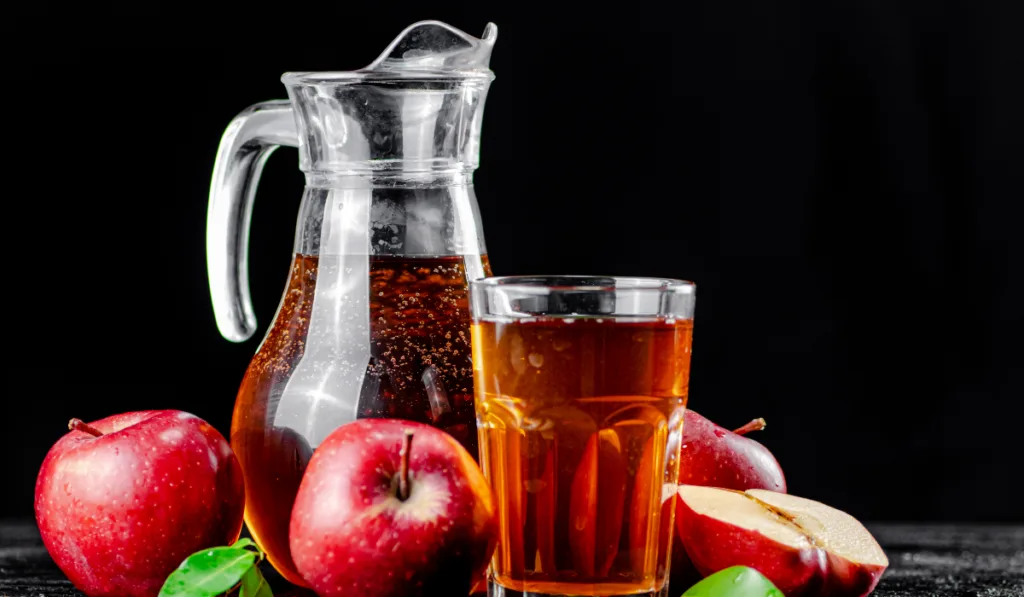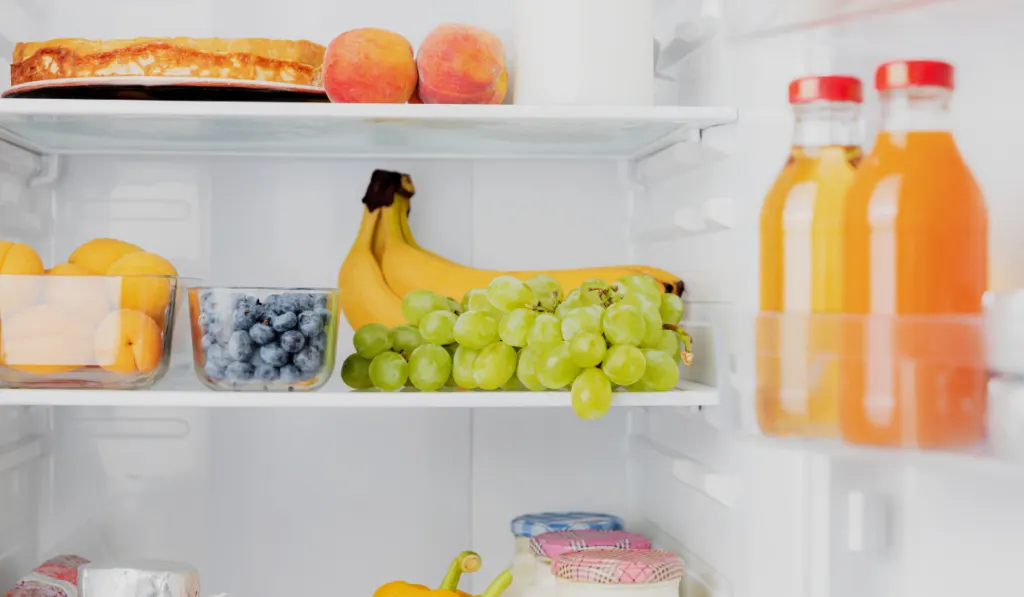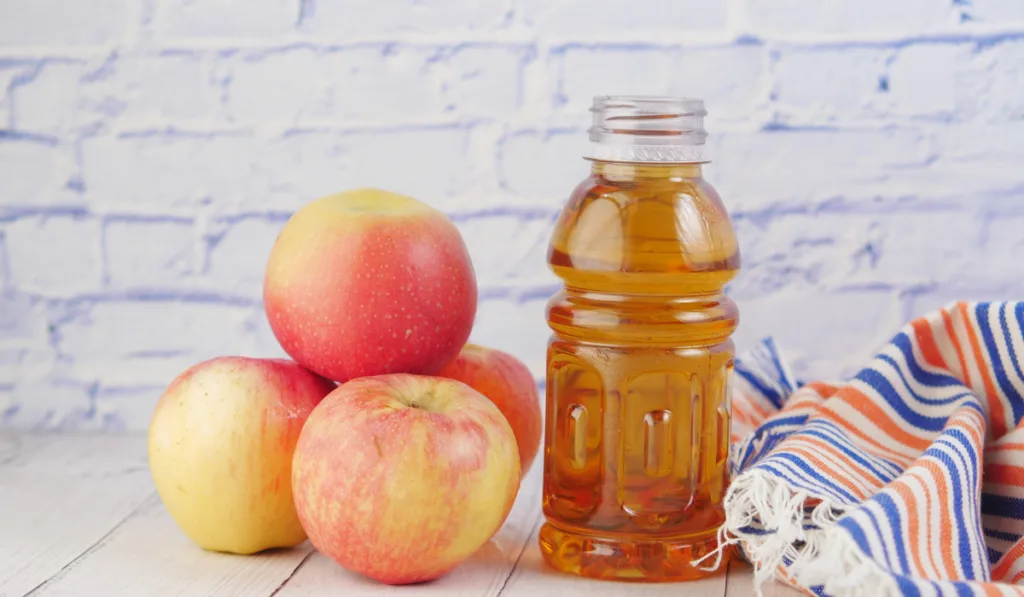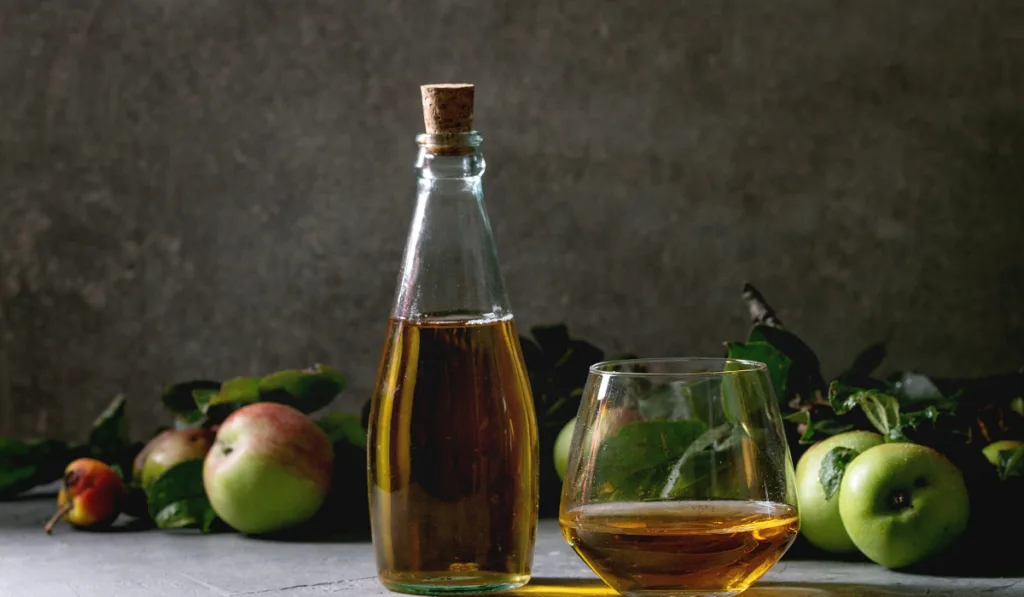Having extra apple juice stocked up in your kitchen is always convenient. Whenever you need the juice for cooking or drinking, just open the fridge or cabinets and they’re ready to use.
To some extent, keeping too much of these juices can lead to waste, especially if they go bad quickly.
If you have experienced this issue before, you might be hesitant to buy apple juice in bulk just to watch it spoil and go to waste.
There are some ways to store apple juices properly and make them last longer. And if you can tell bad juices from the good ones, you can avoid drinking spoiled juice that can make you sick.
In this article, we unravel how to spot the telltale signs of bad apple juices and their shelf-life based on how you store them.

Table of Contents
Signs of Bad Apple Juice
There are five signs to look for in spoiled apple juice, such as:
Sour Smell
Fresh apple juices have fruity and grassy scents, whereas bad juices produce a sour smell that resembles vinegar or beer. This unpleasant smell mainly comes from the juices that started to ferment and spoil.
Texture Change
If you notice the juices contain thick bubbles and cloudy suspensions, it is time to throw them away. These two signs indicate that your apple juice has fermented and spoiled.
Discoloration
Fresh apple juices have translucent and yellowish-green hues.
When apple juice starts to spoil, it will turn dark and look brown.
Mold Growth
Bad apple juices will also have mold growing inside or outside their container. Never consume moldy juices, which can cause serious health issues.
Swollen Container
Fermentation in bad juices produces methane gas as a waste product. Since most unopened store-bought juices are kept in tightly sealed containers, the gas has nowhere to go to escape.
In turn, accumulated gas will cause the juices’ container to bulge and appear puffy. So, you should discard the juices if the containers look swollen.

How Long Does Apple Juice Last in the Fridge?
Most unopened store-bought apple juice can last up to 5 months in the fridge based on the expiry date. Some can even last up to a year.
But once you open the juice, it usually lasts between 2 and 3 weeks in the fridge.
On the other hand, homemade apple juices are purely organic. There are no preservatives that can extend their shelf-life. Homemade juices can only last in the fridge for 3 to 5 days.
How Long Can Apple Juice Stay Good Outside the Fridge?
If you pour apple juice and forget to store it in the fridge, you can safely drink it within two hours.
After this period, it is better to discard the juice. At room temperature, specifically below 90°F, bacteria and other microorganisms can replicate and slowly spoil the juice.
Furthermore, warm temperatures and humid environments can also promote the growth of mold and bacteria. So, if you live in warm or hot regions, you must refrigerate the juice.
Consuming opened apple juice that has been left out for hours may trigger various health issues, such as nausea, vomiting, abdominal cramps, and diarrhea.
There are also two types of apple juices you can find in your local supermarkets, which are pasteurized and unpasteurized juices.
Pasteurized juices are treated with high heat to kill all microorganisms and bacteria.
Meanwhile, unpasteurized juices don’t undergo the same treatment and are usually sold just as they are.
In turn, unpasteurized juices should stay refrigerated to extend their shelf-life, whereas pasteurized juices can stay at room temperature until they expire.
Hence, if you leave unpasteurized juices outside the fridge for more than 2 hours, quickly throw them away.

How to Store Apple Juice?
Although apple juices go bad over time, there are a few ways to prolong their shelf-life. For instance:
Freeze the Juices
The best way to store and extend apple juices’ shelf life is by keeping them in the freezer. Since these juices have high sugar content, they can quickly freeze in just a few hours.
You can also pour apple juices into tight containers or popsicle molds and later serve them as refreshing treats.
Frozen juices can last for up to a year. But once you thaw them, they remain good only for a week.
Pasteurize Your Homemade Juices
You can pasteurize your homemade apple juices by heating them over high heat. This method can effectively kill any remaining bacteria in the juices.
To pasteurize the juices, heat them until they reach 160°F. Then, stir the juices for at least 1 minute before transferring them into mason jars or tightly sealed glass containers.
Avoid boiling the juices to prevent flavor loss. Plus, boiled juices have fewer vitamins compared to fresh and pasteurized batches.
Keep Unopened Juices in Cool and Dark Places

Temperature and humidity fluctuations can also shorten the juices’ shelf-life. You should store unopened juices in the fridge or closed cabinets.
When keeping these juices in the fridge, don’t put them near meats, poultries, seafood, or any food with a strong odor.
But if you choose to keep apple juices in the pantry, never choose cabinets that are close to windows or sinks.
Final Thoughts
Overall, you can always deal with bad apple juices by learning how to store them properly.
Once you know how to spot bad apple juice, you can plan your spending and skip that frequent grocery trip just to buy fresh juices.
Resources
- https://www.doesitgobad.com/does-apple-juice-go-bad/
- https://gobadornot.com/apple-juice/
- https://www.canitgobad.net/can-apple-juice-go-bad/
- https://canfoodgobad.com/can-apple-juice-go-bad/
- https://www.lacademie.com/does-apple-juice-go-bad/
- https://eatdelights.com/apple-juice-shelf-life/
- https://www.thedonutwhole.com/how-long-can-you-leave-apple-juice-out-for/
- https://www.canr.msu.edu/news/pasteurized_or_unpasteurized_juice_whats_the_difference
- https://powerxljuicer.com/the-pros-and-cons-of-boiling-fresh-pressed-apple-juice/
